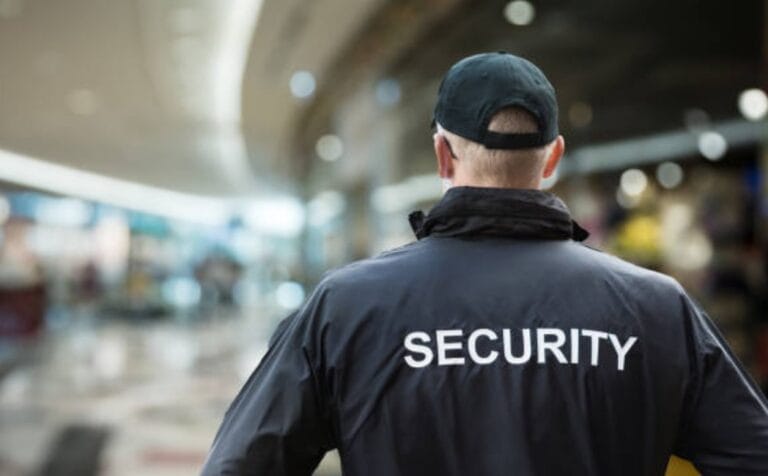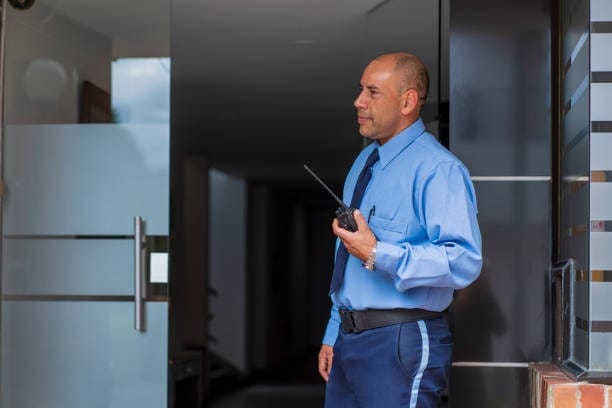Protecting your business assets is essential as they ensure operational continuity, safeguard intellectual property, and mitigate risks. With the complexity of security challenges being at an all-time high, selecting the asset protection security service to be used requires a thoughtful and strategic process. Here is a complete guide to assist you in making the best selection for your business.

Table of Contents
1. Understand Your Security Needs
Every business has unique assets and risks. Start by conducting a thorough assessment of your security requirements:
- Physical Assets: Equipment, inventory, facilities, and infrastructure.
- Digital Assets: Data, intellectual property, and confidential information.
- Human Resources: Employees, customers, and visitors.
Consider the specific threats your business faces, such as theft, vandalism, cyberattacks, or natural disasters. A detailed analysis will help you identify which services are essential for your protection.
2. Research Security Providers
Not all security companies are created equal. Research potential providers to find one that aligns with your needs:
- Look for companies with a proven track record in your industry.
- Check their certifications, licenses, and accreditations.
- Read reviews and request references from past or current clients.
3. Evaluate Their Expertise and Services
Ensure the security provider offers the expertise and services you require. Common asset protection services include:
- On-Site Security Personnel: Trained guards to protect your premises.
- Surveillance Systems: Cameras, sensors, and monitoring technology.
- Access Control: Systems to regulate and monitor entry to sensitive areas.
- Cybersecurity Solutions: Protection against data breaches and cyber threats.
- Emergency Response: Rapid response teams for incidents such as fire, theft, or medical emergencies.
4. Check Their Technology and Innovation
Modern security solutions leverage advanced technologies. Assess the provider’s use of:
- AI and Machine Learning: For predictive threat detection and analysis.
- Cloud-Based Solutions: For real-time monitoring and data storage.
- Mobile Integration: Apps for easy management and notifications.
- IoT Devices: Sensors and devices that enhance situational awareness.
5. Assess Their Training and Standards
Security personnel and teams should be highly trained and adhere to industry standards:
- Verify the company’s training programs and certifications.
- Inquire about their background checks and vetting processes.
- Confirm compliance with local and international security regulations.
6. Consider Customization and Flexibility
Your business is unique, and a one-size-fits-all solution won’t suffice. Look for a provider that offers:
- Tailored Security Plans: Solutions designed specifically for your needs.
- Scalable Services: The ability to grow or adapt as your business evolves.
- Integration Options: Compatibility with existing systems and protocols.
7. Review Communication and Reporting Practices
Effective communication is key to successful asset protection. Ensure the provider offers:
- Clear Reporting: Regular updates on security measures and incidents.
- 24/7 Support: Immediate assistance during emergencies.
- Open Communication Channels: Easy access to their team for concerns or queries.
8. Examine Their Reputation and Client Feedback
A company’s reputation speaks volumes about its reliability and performance. To evaluate:
- Check online reviews and testimonials.
- Request case studies or examples of successful implementations.
- Speak to current or past clients to understand their experiences.
9. Understand the Costs
Cost is a significant factor, but it should not be the sole determinant. When reviewing pricing:
- Compare quotes from multiple providers.
- Analyze the cost-benefit ratio of their services.
- Be wary of suspiciously low prices, which may indicate inferior quality.
10. Test Their Responsiveness
Security is a 24/7 concern, and your provider’s responsiveness can make all the difference:
- Test their response times to inquiries or emergencies.
- Evaluate their readiness to address potential issues.
- Confirm the availability of backup plans and contingencies.
11. Review Contracts and Agreements Carefully
Before signing an agreement, scrutinize the contract terms:
- Check for hidden fees or unclear clauses.
- Ensure all agreed-upon services are documented.
- Understand the termination and renewal policies.
Seek legal advice if needed to ensure you fully comprehend the contract.
12. Prioritize Long-Term Partnerships
Building a long-term relationship with a security provider can offer benefits like:
- Enhanced understanding of your business operations.
- Consistency in service quality.
- Opportunities for continuous improvement and innovation.
Conclusion
The right asset protection security service is a very crucial decision that determines the safety and stability of your business. You will be able to secure a partner that aligns with your goals and offers peace of mind if you assess your needs, research providers, and focus on quality over cost. The right security service is not just an expense but an investment in the future of your business—a future that can be confidently safeguarded with Alfa Security.
Such businesses looking for security companies in Melbourne, Australia, will always find reliable options such as Alfa Security, which offers customizable solutions to meet different needs for protection. This kind of business offers comprehensive services including on-site guarding and mobile patrols and advanced technological monitoring.



